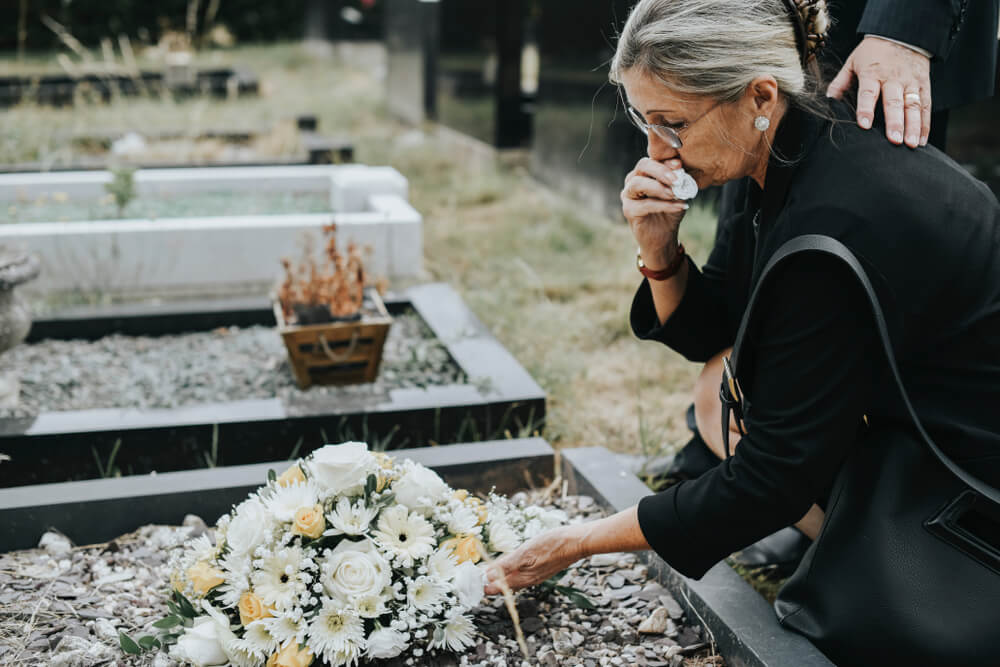When a loved one dies, a paradox is installed in our lives: the person dies, but not the love we feel for him. One way or another, we’re overwhelmed by a feeling that seems to have no owner. The next step is to go through the duel. However, in this process, it is also valid and necessary to express a love for those who are no longer present.
We know that there is a process of personal pain, but there is also a social process, these include funerals, condolences, courtesy visits, etc. Currently this phase is incredibly short. In a few days you’re supposed to be ready to go back to your “normal” life and that your task is to do everything in your power to forget. Put this difficult experience aside. Severe or very severe pain bothers others.
“When my voice is silent with death, my heart will continue to speak. “Rabindranath Tagore?
Sometimes you can adapt to these social norms and, in a short time, return to your routine, with more and more conviction. You may want to cry when you see a beautiful afternoon, but it represses. It can also happen that something in you resists saying goodbye, and it becomes difficult to live with yourself and others. In both cases, we may need to express love for those who are no longer present.
To speak, none of the people we love die in us, some still stay, even without us noticing, there is a part of each of us that is inhabited by these presences, even if they are perceived as absences. I won’t die either. They’re pale or they’re restructuring their expectations, but they’re still there.
Therefore, in all cultures there has always been a set of traditions to honor those who are no longer, in the West it is common to visit graves, bring flowers and perhaps pray, this kind of habit was being lost. Cemeteries are no longer places we want to be, in fact, we have no way of expressing love for those who are no longer there.
Actions aimed at honoring those who have already left are not merely conventionalisms, they have a meaning that is, in principle, the opportunity to express our love, perhaps it would be more accurate to say that they are rituals that help us bring peace to those absences that live in us. We meet again, we cry and look them in the eye.
Persisting in the pain of loss is as damaging as looking the other way and pretending that what happened is behind us, the people who are gone, those we love deeply or who have played a decisive role in our lives, are always there, talking to us.
They return in moments of solitude, in a later duel, they live here and return in the form of a passing anxiety, a sadness that has just disappeared, or a feeling of helplessness that becomes dizziness, headache, feeling confused. .
Therefore, all ancestral cultures have honored those who are no longer present, they knew that it was very important to express their love to them.
While they say that human beings are fundamentally part of the present, it may be more accurate to point out that we are, in particular, part of the past, we are a story that is still told, day by day. Hence the importance of not losing sight of everything that precedes us.
One of the most beautiful traditions in the world is the Day of the Dead in Mexico, it is a celebration very similar to a ritual and a carnival, on November 1 we remember the loved ones who died, they exhibit their photographs, their memories and those who have gone back to being protagonists of the world of the living.
Mexicans write letters, improvise altars, pray. They are also present in cemeteries and serenade, sing, recite their loved ones, ultimately give visibility to these ghosts, shape them and speak to them, declare that forgetfulness is impossible and meet their absentees.
It would be healthy for each of us to do our own ritual to invoke those who have already left, to express their love for those who are no longer with us, to meet their memory, with the imprint they left.
It is necessary to recognize that there is an emotional connection that even death cannot break. Suppose we go through life with and despite our losses. Understand that the only possible destiny is not emptiness or forgetfulness.

